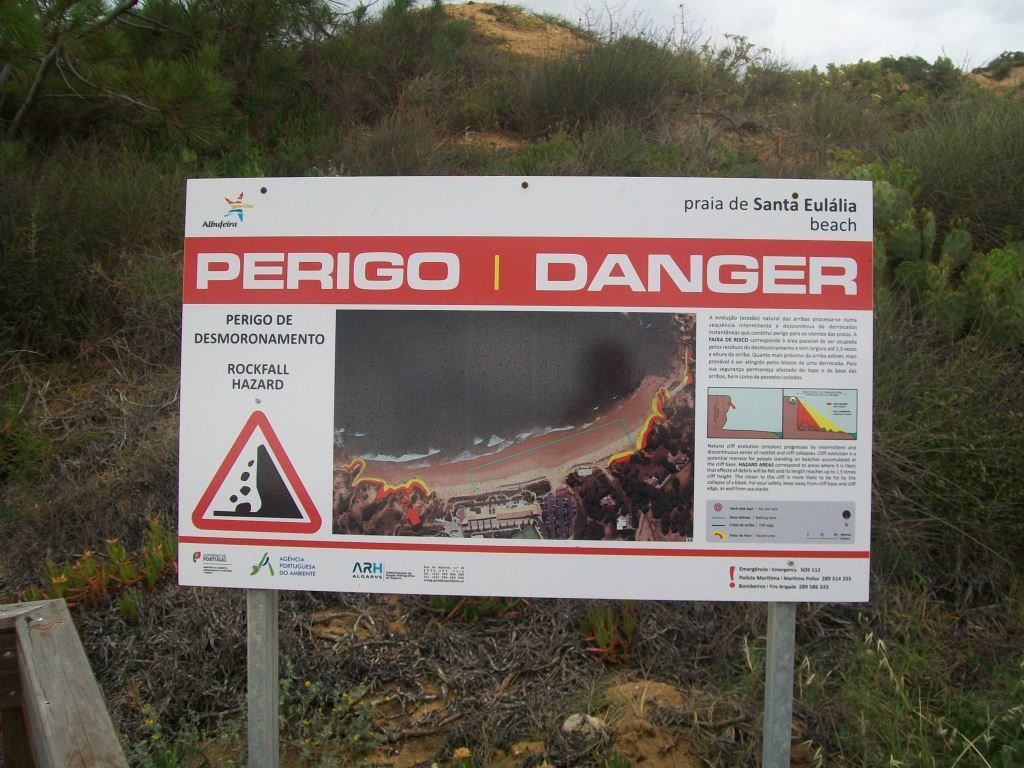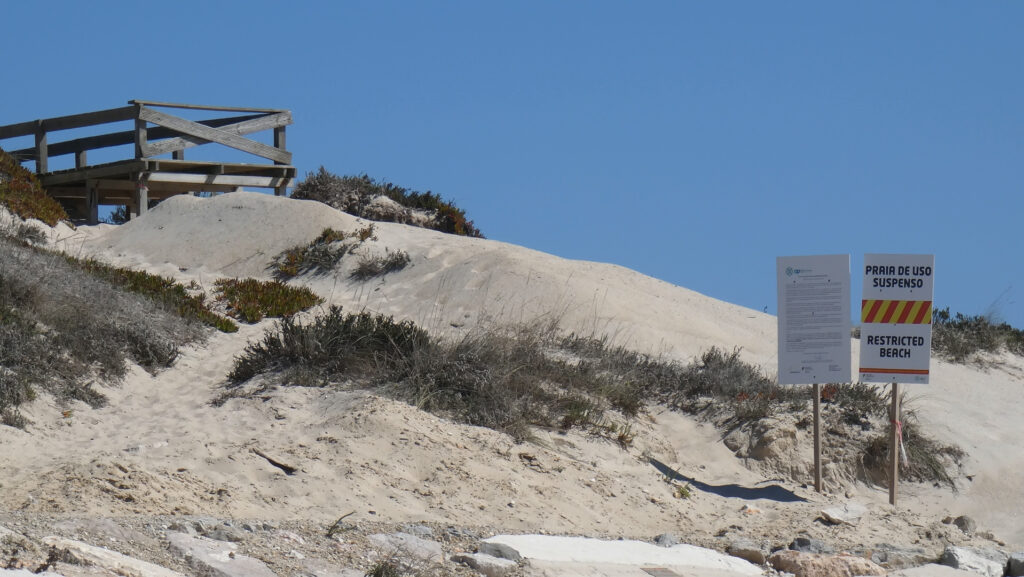With one of the most energetic coastlines in the world, Portugal is one of the countries most affected by erosion processes on its coast. According to the Portuguese Environment Agency, under the COSMO Programme, the country lost another 1313 hectares of coastal territory between 1958 and 2020.
The problem is not recent. However, it has been intensifying as a result of climate change and the rise in mean sea level, along with the natural dynamics of coastal ecosystems and anthropogenic factors, such as human intervention in fluvial processes in rivers and reservoirs or the implementation of heavy works of coastal engineering.
It is estimated that more than 1/4 of the Portuguese continental coastal zone is affected by intense erosion processes in the cliffs and in the beach/dunes systems, as well as by changes in the sedimentary balance dynamics along the coast, resulting in the retreat of the line of the coast and in the loss of sand from the beaches and the dismantling of the dune systems.
However, the loss of territory is not an exclusive consequence of erosion processes on the Portuguese coast. The sea, combined with erosive episodes, threatens to affect an important part of the country's natural and landscape heritage, as well as valuable natural ecosystems and, with them, an important marine and coastal biodiversity.
On the other hand, it is worth mentioning the impact of coastal erosion and its relationship with some of the strategic sectors of the Portuguese economy, particularly in the sector of Tourism and coastal recreation, in the sector of Fisheries and Aquaculture, in Transport to port activities.
Finally, and considering that the areas most affected by coastal erosion processes coincide with areas of human occupation with residential use or with commercial and industrial activities, with emerging groups of users, leisure and sports, the problem becomes particularly critical for coastal communities, many of them already considered at risk and of growing social and economic vulnerability.
Preliminary data from the National Roadmap for Adaptation 2100 show that by the end of the century, more than 60 Portuguese will be directly affected by the problems caused by coastal erosion.
For this reason, and despite the implementation of erosion adaptation strategies, compatible with coastal ecosystems and nature conservation, such as the restoration of dunes, it is important to debate the future and adaptation of thousands of Portuguese people directly affected by coastal risks, but also because of the expectations of enjoyment and use by many more Portuguese and non-nationals.
Considering that Portugal concentrates about 60% of the population in the coastal strip (0-25km), it seems appropriate that the management of the Portuguese coast will have to integrate, in its strategy, communities vulnerable to the effects of coastal erosion, considering its people, its ways of life, interests, knowledge, values and expectations.
In fact, a recent study led by James Cook University (Australia) demonstrated the essential role of people and their active involvement in Integrated Coastal Zone Management. The study demonstrated that public participation in coastal planning and decision-making processes is a determining factor for the success and sustainability of measures implemented to adapt coastal areas to their risks, such as erosion.
It was found that reconciling the local interest with the public interest, the articulation of local, technical and scientific knowledge and the collaborative development of innovative solutions for the adaptation of coastal systems to the risks they face, translate into fundamental strategies for the success of any coastal management plan.
However, the magnitude of the problem in Portugal seems to be disproportionate to the knowledge and involvement of the Portuguese public with processes related to risks and coastal management.
Preliminary results of a study being carried out by a team of researchers from the Center for Social Studies (CES) and the Department of Earth Sciences (DCT) of the Faculty of Science and Technology of the University of Coimbra (FCTUC) show that less than half of the Portuguese consider the coastal risks, such as erosion processes and coastal overtopping, very serious.
On the other hand, most Portuguese admit not knowing the National Strategy for the Integrated Management of Coastal Zones, the Coastal Border Programs and the Flood Risk Management Plans; and considers that information on processes related to coastal risks is insufficient.
Preliminary results demonstrate the urgency of raising awareness and empowering the Portuguese for their active involvement in decision-making processes related to coastal management and encouraging the involvement of local communities in the development and implementation of new solutions to solve problems related to the Portuguese coastline, as is coastal erosion.
The study is still under development and any citizen can participate through the link: https://forms.gle/qbLrqpHgrRKCVdedA
Article authors:
Neide P. Sand is a researcher at the Center for Social Studies of the University of Coimbra
Pedro Costa is a researcher at Instituto Dom Luiz, assistant professor at the Department of Earth Sciences (DCT) of the Faculty of Science and Technology of the University of Coimbra (FCTUC)
Alexandre O. Tavares is a researcher at the Center for Social Studies of the University of Coimbra, associate professor with Aggregation at the Department of Earth Sciences (DCT) of the Faculty of Science and Technology of the University of Coimbra (FCTUC), chairman of the Board of Directors of the Waters of Centro Litoral






















Comments